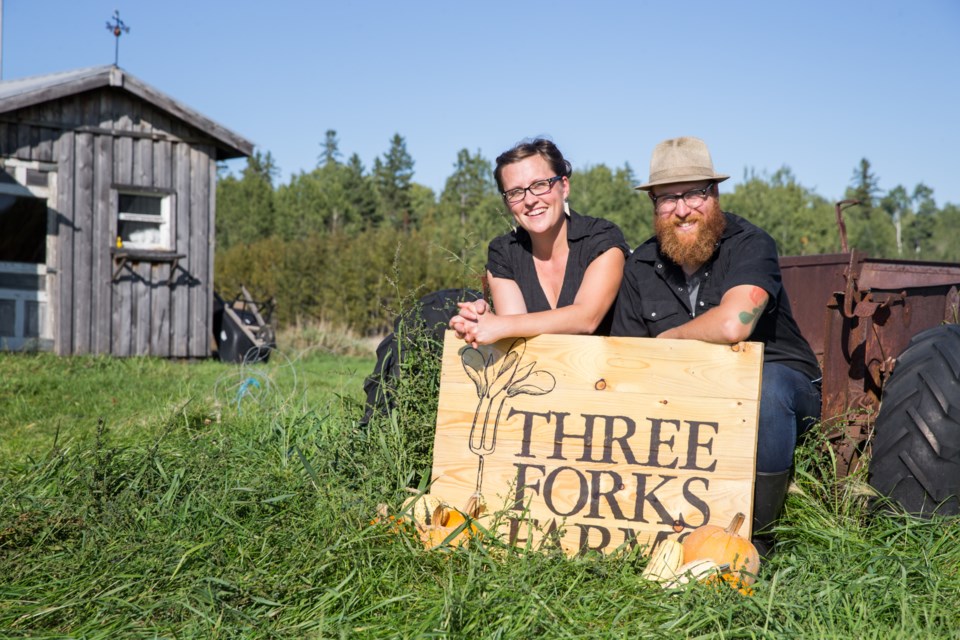Ask Peggy Baillie of Three Forks Farms if the COVID-19 pandemic has spurred an increase in seed sales this year, and there’s zero hesitation.
“Tenfold; I can’t even compare it to previously,” said Baillie, who co-owns and runs the farm near Ice Lake in the west end of Manitoulin Island with her husband, Eric Blondin.
“We’ve sold at least three times as much seed in March and April than we did the previous year, if not more than that.”
As concern grows over regional food security, more people are looking to grow their own food to ensure a steady supply, sparking the interest in seed cultivation and the corresponding boost in sales.
Global demand has soared such that commercial seed producers can’t keep up while still respecting current physical distancing measures, and so they’ve limited their distribution to commercial orders.
“So it’s the smaller seed companies like ours that are really stepping up to fulfill the demand for the backyard gardeners and the consumer seed demand, which is amazing,” Baillie said.
“We’re just really excited to see that people are taking on the initiative to grow their own food.”
Prioritizing regional food production is the driving force behind a new, nationwide campaign, led by the non-profit organization SeedChange, to increase seed diversity across the country.
Over the summer months, 200 farmers will grow sustainable local vegetable seed crops, save seeds at risk of extinction, promote biodiversity, and breed new varieties best suited for local climate and soil conditions.
Three Forks Farms, which recently relocated to Ice Lake from Warren (east of Sudbury) is one of 20 participating Northern Ontario producers.
“It’s no secret that coronavirus is impacting Canada’s food supply,” SeedChange executive director Jane Rabinowicz said in a news release.
“COVID-19 has revealed the importance of being prepared for crisis, and we need to learn from this and increase seed production to improve our country’s food security – and the time to start is now.”
Want to read more stories about business in the North? Subscribe to our newsletter.
According to Baillie, a whopping 97 per cent of seed planted in Canada is imported from other nations, leaving the country vulnerable to shortages and instability, and produce lacking in taste and variety.
“If we regionally produce seed, it will actually produce better than imported seeds, because it’s adapted to the climate, it’s adapted to the conditions, and it’s adapted to the way that we like to grow,” she said.
At Three Forks Farms, Baillie and Blondin promote seeds that flourish in Northern Ontario’s short growing season, do well in the climate, and increase a gardener’s chance of success.
They also try to offer greater varieties of seed crops than one might see in grocery store produce section.
Instead of cultivating the orange, perfectly cylindrical carrots that most consumers would easily recognize, for example, they’ll introduce customers to purple or yellow ones that come in different shapes, sizes and flavours.
Some growers only want to stick to what they know – it’s just orange carrots for them. But others are open to trying something new and expanding their options and their palettes.
Baillie said it’s an important conversation to have.
“We’ve lost a ton of our genetic diversity in our agriculture system worldwide over the last 100 years."
“We really have to take building genetic seed diversity very seriously if we want to be more resilient in the face of climate change and we want to have more flavour and more nutrition than what we have now.”
SeedChange has launched an online SeedFinder database where consumers can search by region to locate farmers who have locally adapted seeds for sale.
Though it took a global pandemic to get here, Baillie is optimistic a shift in perspective is happening.
In her conversations, Baillie sees a customer willingness to alter their shopping habits in favour of supporting local producers, hopefully on a permanent basis.
“I think people have realized that we need to really think more closely about how we’re going to take care of ourselves and how we have the security to have enough food for ourselves,” she said.
“I think part of that is how do we grow for ourselves, but also how do we support regional food production?
“So I have a feeling, and I hope, that this will be longer lasting than just a flash in the pan. That’s my goal.”




